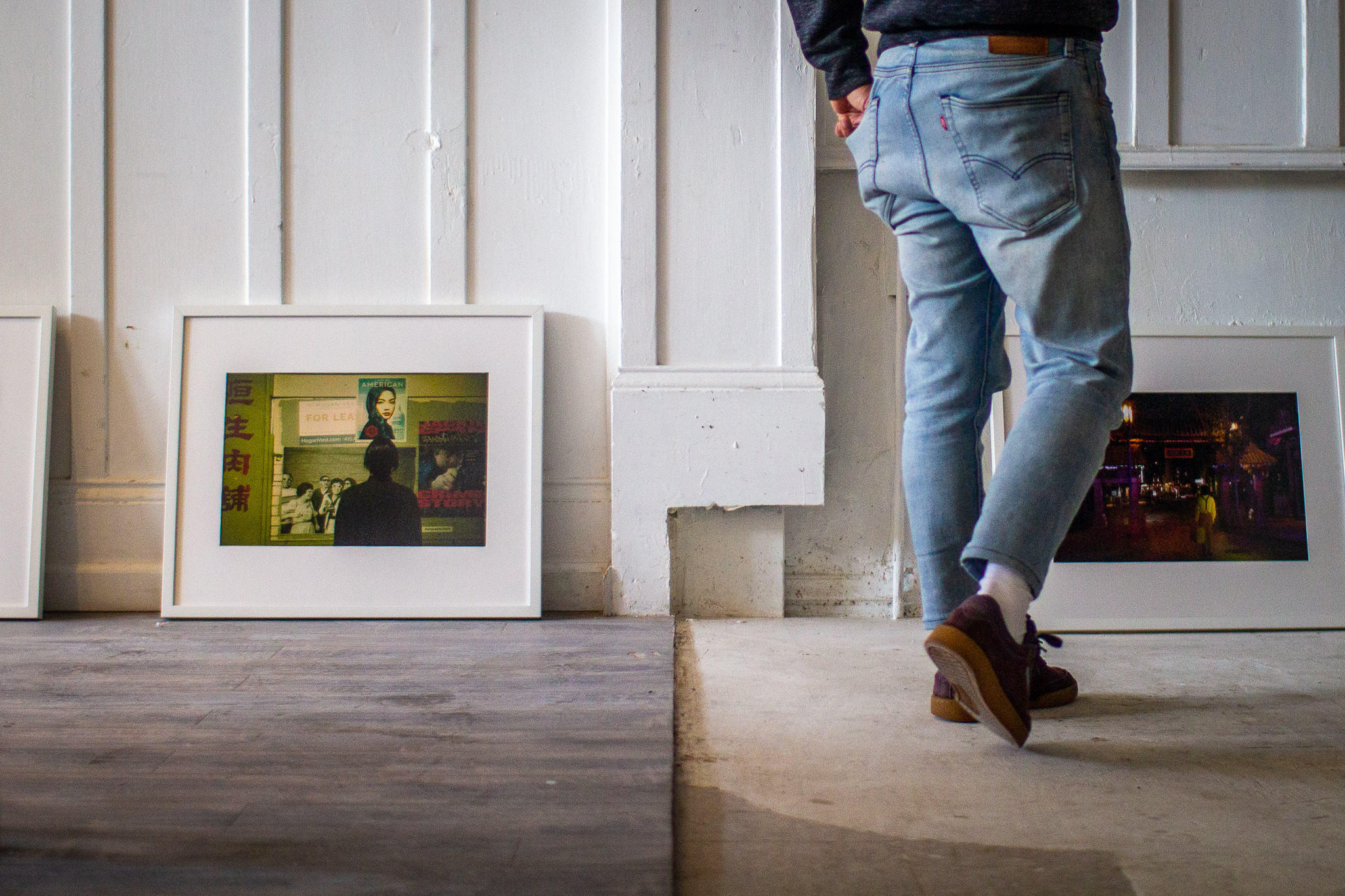Chinese visual artist Yunfei Ren moved to San Francisco in Feb. 2020, a month before the pandemic hit the city. Ren, who was born in Wuhan, China, says it was a difficult—and at times frightening—period to get to know San Francisco.
“We’re seen as the ones who brought the disease to everyone else,” said Ren, citing the prejudice immigrants from Wuhan faced, especially early on in the pandemic. “All the attacks that I’ve seen in the news, especially against Asian citizens, have pained me very deeply.”
More than a year later, Ren has channeled that fear into a new photographic series called “Chinatown Ghost,” which explores the concept of belonging, and debuts on Saturday, Oct. 16 at the Joy On Joice Street Fair in Chinatown.
In its inaugural year, the fair promotes the creativity of the Asian American and Pacific Islander communities by celebrating makers, artists, organizations and performers, according to the Chinese Historical Society of America.
Here/Say caught up with Ren ahead of the fair as he set up his work. His exhibit features a series of 10 photographs in which Ren portrays a Chinese immigrant arriving and living in San Francisco beginning around 1882 when the Chinese Exclusion Act passed.
“Right before the pandemic I became very interested in the history of Chinese immigrants [in San Francisco] since the Gold Rush era,” said Ren.
“I created this series as a way to kind of relate my immigrant experience to the early pioneers and draw the parallel between the discrimination and prejudice that they faced to the conditions of Asian Americans that we still face today, and especially given all the hate crimes against Asians since the pandemic.”
Ren described the ways in which he personally—along with his Chinese-American and Asian American compatriots—feel targeted as a result of the COVID-19 pandemic.
“We are still perceived as perpetual foreigners.”
While living in Europe and other parts of the U.S., Ren said he always felt like the only Asian person around, but felt differently about S.F.
“San Francisco is different. I feel at home here. I can go out and find Wuhan restaurants that serve my local cuisine.”
But on the other hand, “it’s even more shocking that there’s still a lot of hate crime happening in the very city with a large Chinese and Asian population. If out of all places, San Francisco has a high rate of hate crime against Asians, then that means the whole country has a long way to go.”
“If out of all places, San Francisco has a high rate of hate crime against Asians, then that means the whole country has a long way to go.”
Yunfei Ren
When asked about the name of the exhibit “Chinatown Ghost,” Ren shared the double meaning of the Chinese word for ghost: guǐ 鬼.
“In a literal sense, it means ‘ghost’: someone who still lingers in our world… And then on the metaphorical level, guǐ 鬼 also means fear.”
Ren described the fear for “even basic survival and safety” as an intrinsic element of the Asian experience during the Gold Rush era. “There were often mob attacks,” he said.
Ren hopes that the series will “remind people what has changed and what has not.”
The exhibit will be open during the Joy On Joice Street Fair on Saturday, Oct. 16. from 11 a.m.. until 4 p.m. Tickets are free.
